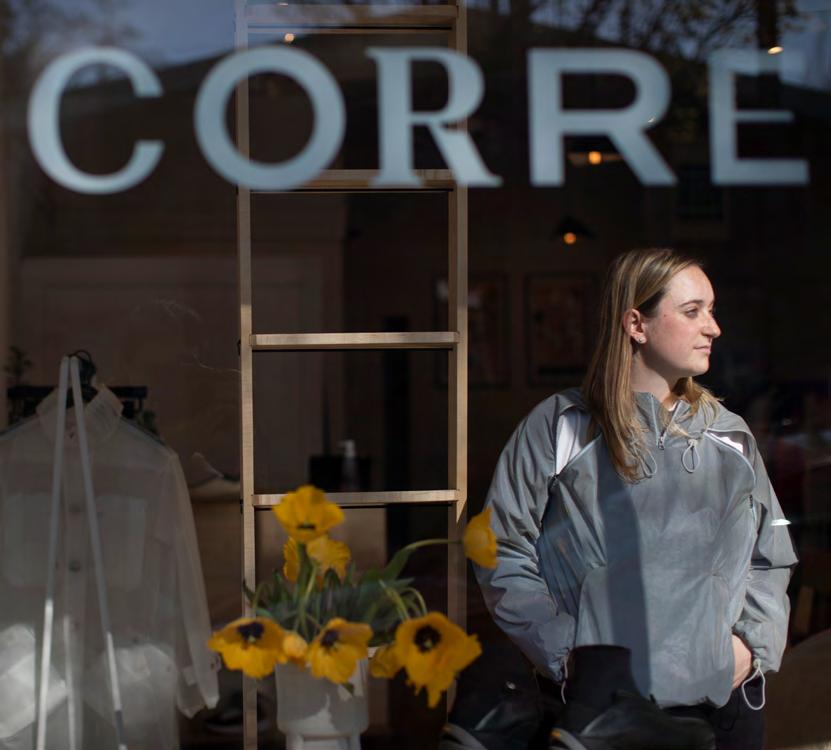
24 minute read
alumni spotlight
FASHION FORWARD
(thinking)
Advertisement
APPAREL COMPANY BRINGS AN ENVIRONMENTALLY FRIENDLY AND
ETHICAL APPROACH TO COUTURE By Tina Potterf
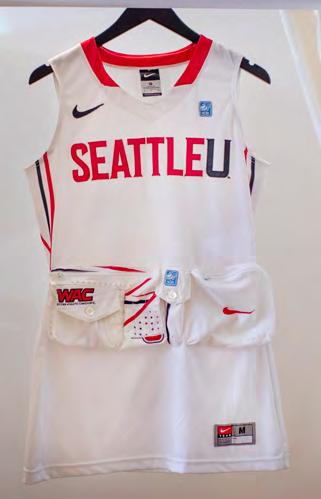
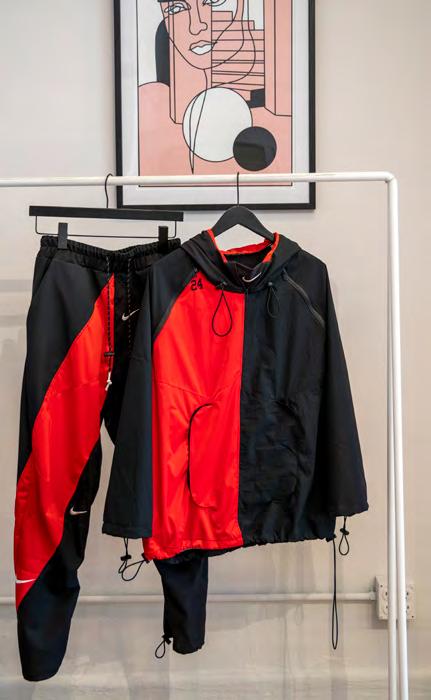
“We create clothes and sneakers that reflect the fashion industry we hope to see in the future— one not categorized or defined by gender, but that is fluid and truly encourages full expression of the individual.”
—Desi Caswell, ’18
Photos by Yosef Chaim Kalinko
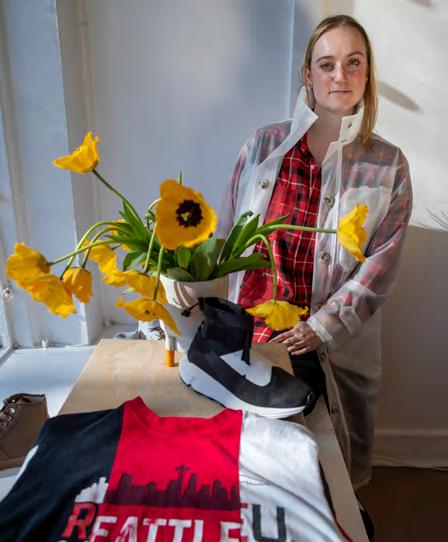
What for Desi Caswell, ’18, started as a passion project has turned into a sustainable profession—emphasis on the sustainable. For Caswell, this means working for a company that doesn’t just pay lip service to environmental and climate issues but instead is doing its part to make the world— and our place in it—that much better. And it starts with what we wear.
Caswell is director of operations and social impact for Guillermo Bravo, a sneaker and apparel company based in Seattle, and CORRE, a shoe store in the Madrona neighborhood. But this is no ordinary clothing outlet—the Latinoowned brand focuses on sustainable, genderless apparel constructed from ethically sourced products and materials. Imagine this: An old jersey transformed into a designer-quality top. A pair of trainers reimagined to add new appeal to old kicks. But it doesn’t just stop there.
“We create clothes and sneakers that reflect the fashion industry we hope to see in the future—one not categorized or defined by gender, but that is fluid and truly encourages full expression of the individual,” she says.
Starting out as a volunteer helping good friend and founder Luis Vélez with event planning and project management, Caswell became a full-time employee of Guillermo Bravo last October. In addition to overseeing the day-to-day operations, she also creates and implements business strategies and events at Guillermo Bravo’s Capitol Hill design studio and at CORRE.
“I was drawn to the company because of its focus on making an impact on the fashion world and the way we create clothes,” says Caswell. “Everything I do is rooted in creating a space where people can freely express themselves.”
The work has been life changing, says Caswell, and extends beyond the selection of fabrics and recycled clothing to include partnering with models, photographers, factories and mills “that share our interests in fighting for social justice and humane business practices. We refuse to participate in Last fall, Guillermo Bravo teamed up with Seattle U Athletics in creating the Upcycle University Collection, a clothing line that merges sports and fashion. Following Athletics’ branding move from Nike apparel, footwear and accessories to adidas, there was suddenly items no longer usable by the teams that needed a new home.
Enter Caswell, who pitched the Seattle U and Guillermo Bravo partnership to Vélez, who was on board with the idea.
“I was aware that the Athletics department had quite a bit of Nike apparel they would be unable to use and reached out with a unique opportunity to breathe new life into the jerseys and equipment,” she says. “As a former student, proposing a collaboration with SU Athletics would be a perfect fit … . I reached out to my friend, (men’s basketball) Head Coach Jim Hayford, about the project and he connected me with the channels to start implementing the collection. A week later, Luis and I filled our cars with boxes and boxes of SU apparel and started preparing for the project.”
In addition to the haul of Nike apparel, the Guillermo Bravo team received athletic garb spanning decades, with an array of bygone joggers, T-shirts, skirts and jerseys. Says Caswell, “Inspiration was hitting us as we uncovered various logos, embroidered patch work and other materials.”
The boxes of sports apparel sparked a brainstorm session looking at ways to cut, sew and repurpose the worn and weathered items into new creations. “Jerseys and cheerleading skirts that had been sitting in a box for decades were now becoming the feature of our collection,” says Caswell. “We were able to take the integrity of the pieces along with their beautiful branding and recreate them. In this process, we could revive apparel that had lost its original purpose as sportswear, while also paying homage to the players who had once worn them.” between luxury and functionality,” with a dash of the unique and the unconventional. In the case of the Upcycle University Collection, for example, a hoodie is created from old baseball clothing—mostly windbreakers the players don during practice and warmups—and accented with a zipper detail and kangaroo pocket.
Caswell’s education has positively impacted her professional journey in a myriad of ways. Graduating with a double degree in Anthropology and Humanities for Leadership, Caswell was born in Seattle but grew up in McKinney, Texas. An opportunity to return to her birth city—and engage in social justice-driven service—drew her to Seattle University.
“Seattle U caught my eye because of its small campus feel, central location in the bustle of Capitol Hill and focus on social justice and community work,” she says. "My professors taught me the importance of discernment: striving toward a career where I can use my talents and passions, feel joy and serve others. It’s also grounded me in the desire to work toward a more just and humane world in whatever career I am in."
Caswell’s advice for our newest alumni as they embark on their professional paths? Be open to opportunities, be patient and don’t be too hard on yourself if you don’t have everything figured out.
“When I graduated, I had this moment of panic because I didn’t know what I wanted to do with my life. I felt this fear of the unknown. … When I was a student at SU, one of my best friends, Marley, used to tell me that I need to manifest what I wanted in the world. I think I rolled my eyes every time she gave me this piece of advice. But now, it’s one of the biggest things I keep in mind on a daily basis. You never know what opportunities will come your way. Sign up for that informational interview you may not be qualified for (yet). Message that small business on Instagram that sells awesome creative products that you love. Take time to create and foster your passions, both outside and inside your dayto-day work. Growth isn’t linear, but ebbs and flows with the opportunities you take.”
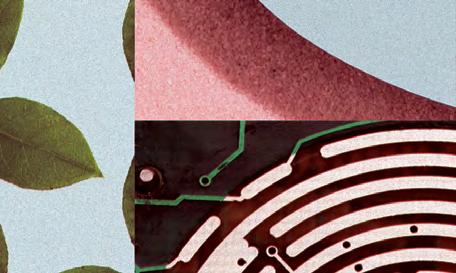
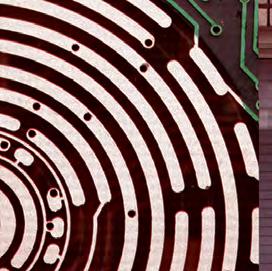
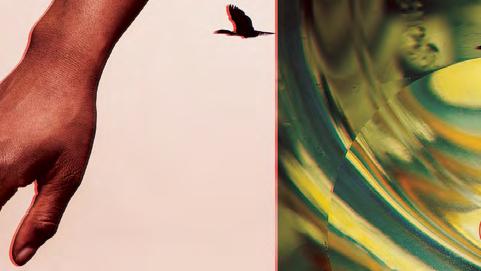
The past many months have been anything but “normal” with descriptors such as “unprecedented,” “challenging” and “disruptive” not capturing the true toll the pandemic dealt so many. But slowly, there are signs that some of that pre-pandemic normalcy is making a comeback. At Seattle University, the future is in view and full of opportunities: A new president, the first in 24 years. The opening of the new Jim and Janet Sinegal Center for Science and Innovation, the hub for STEM education. New academic and research offerings. And new possibilities as students return to campus after months of remote instruction and virtual connections.
AND HERE, WHERE HUMANITY MEETS INNOVATION, WE COME TOGETHER. HERE, WE MEET THE MOMENT.
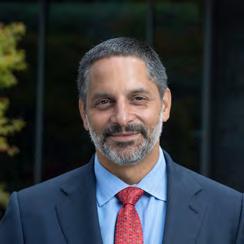
OPTIMISM AND OPPORTUNITY USHER IN RETURN TO CAMPUS
The new academic year is always thrilling—students return and the campus reawakens with their anticipation of the unknown and the joy of discovery. This year will be a particularly special one. After the tremendous challenges of the past year and half, we are committed to creating a more normal campus experience this year. This fall, Seattle University is reopening to in-person instruction, to live events, to the serendipity of the unplanned conversation. The same will be true of the city we call home, as people return to offices and restaurants, theaters and museums. With the Delta variant throwing us a curveball as I write this, we are constantly evaluating the latest data and public health guidance to ensure that everything we do prioritizes the safety of our community and is consistent with the most up-to-date information. While I’m sure there will be more surprises and unexpected challenges along the way, we will respond to them with creativity and flexibility, as we have throughout the pandemic.
But striving to return to normal does not mean simply going back to the way we have always done things. As we emerge from the pandemic, we will be evaluating our practices to ensure that we incorporate the lessons we learned from our forced experiment in virtual learning. We will build on the infrastructure we developed for online instruction to take a leap forward in our capacity to reach out to students who want a Seattle University education but for whom the model of in-person, on-campus instruction is not feasible.
As we begin the 2021-22 academic year, the challenges we face as a society—and to some extent, as a planet—are daunting. As we grapple with questions of racial justice, we are struggling to achieve—for the first time in our nation’s history—a truly inclusive, multiracial democracy. We do so in the face of unprecedented economic inequality, a warming planet and against a backdrop of a dizzying technological change that is undermining social bonds and fostering political polarization, even as it creates new opportunities for connecting with one another.
Viewed from one perspective, this potentially destabilizing constellation of challenges might seem to justify some of our deepest anxieties about the future. But seen in another light, these forces provide unprecedented opportunities for a place like Seattle University, a school dedicated to the production of knowledge with wisdom, to the reconciliation of reason with faith, a university whose mission is to educate leaders committed to human dignity and, through their achievements, to help bring into existence a more just and humane world.
As I begin my term as Seattle University’s 22nd president, my focus will be on ensuring that we continue to make good on our mission by preparing our students to become the kinds of leaders the world so urgently needs, by offering them a curriculum that is challenging, engaged and inclusive, in the best Jesuit tradition, and by supporting faculty research that is as rigorous as it is relevant. As we continue to implement Seattle University’s forward-thinking Strategic Directions and LIFT SU goals, we will reimagine our curriculum, enrich our student experience, build bridges to the Seattle business community and create a more equitable and inclusive campus environment.
We will be greatly assisted in these efforts by the successful execution and recent conclusion of the Campaign for the Uncommon Good. As a result of that historic effort, which raised more than $300 million in new gifts and pledges, we are heading into this next phase of Seattle University’s development with phenomenal new physical spaces—such as the Jim and Janet Sinegal Center for Science and Innovation—and new programmatic resources to support financial aid, student well-being and Seattle University’s Jesuit character, among many others.
Over the coming years, I look forward to working with our alumni and friends—along with the Seattle University students, faculty and staff—to build on the solid foundation established by my predecessor, Father Steve. Together, as we emerge from this long COVID-19 hibernation, we will bring Seattle University to new levels of achievement and excellence.
Eduardo M. Peñalver
President
President Eduardo Peñalver strolls campus with his dog, Griffey. (And yes, the president is a big fan of the Seattle Mariners!)
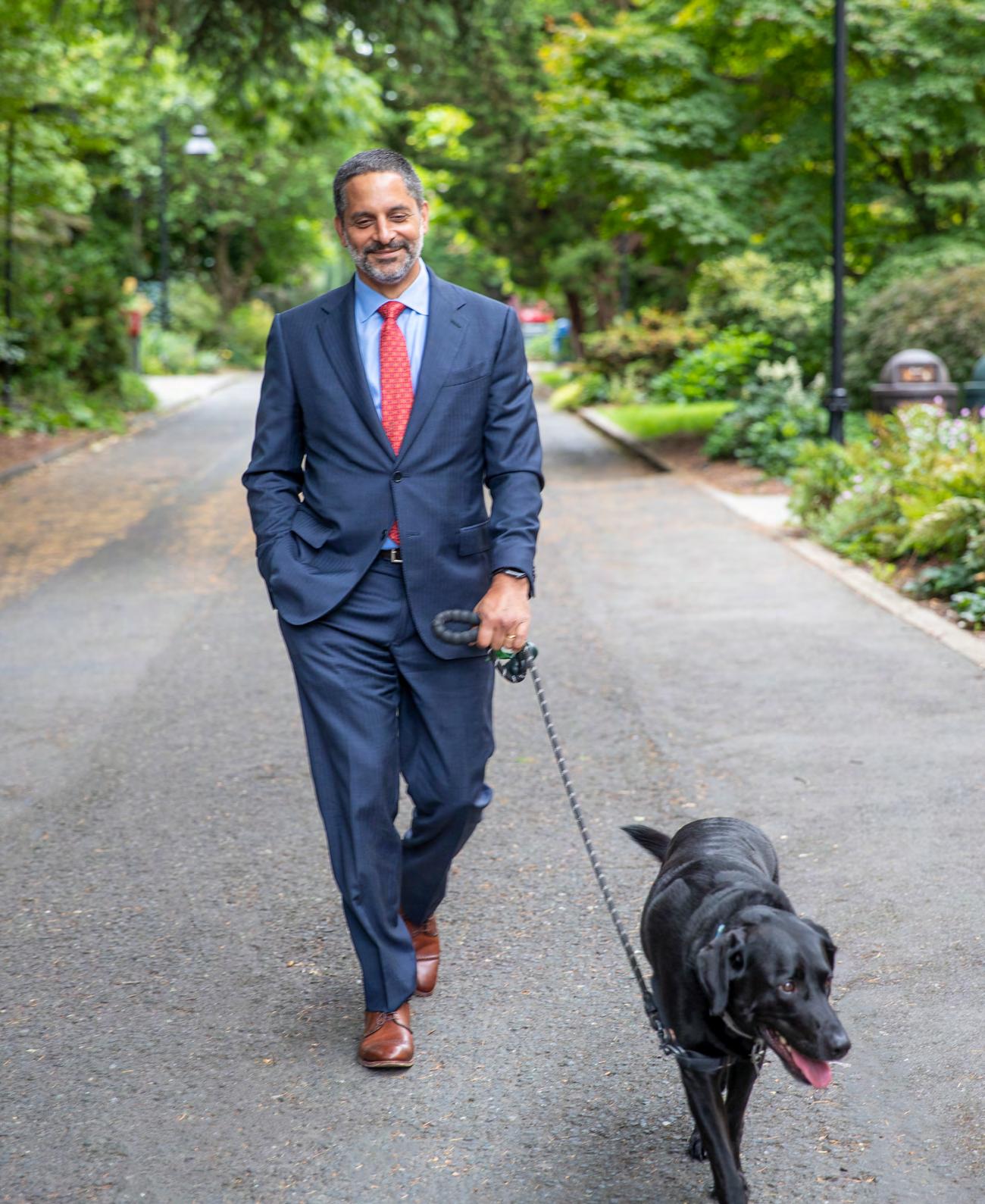
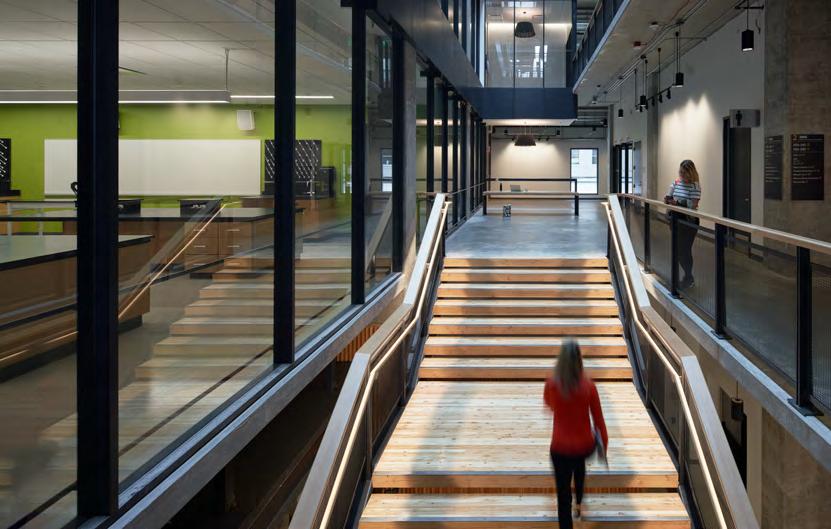
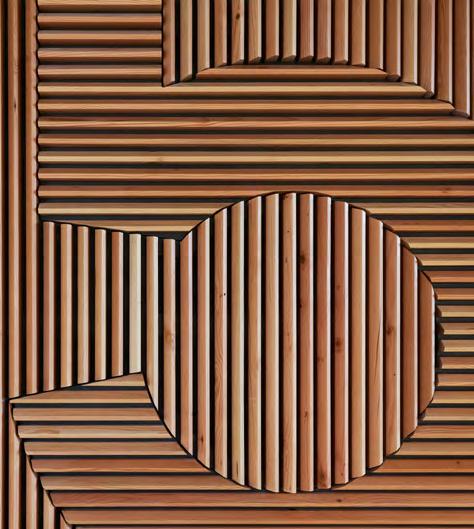
SINEGAL CENTER MARRIES FORM AND FUNCTION IN
REAL TIME By Allison Nitch
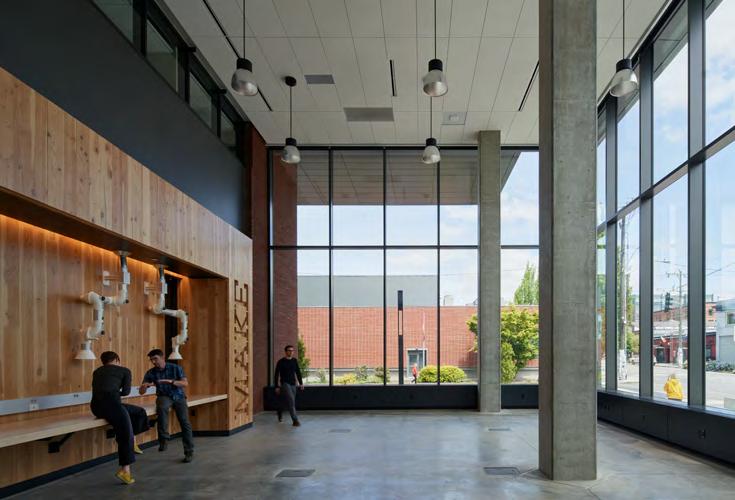

Photos by © Kevin Scott
Among the Jim and Janet Sinegal Center for Science and Innovation’s multitude of features, its modern lab facilities are designed to strengthen students’ professional formation and enhance the student experience—key features aligning with Seattle University’s strategic directions.
The collaborative expertise from both a facilities and academic lens has informed the infrastructure and educational needs of the Sinegal Center, a state-of-the-art computer science facility, laboratory and central hub for all students on campus.
The center’s Facilities team toured other university labs with Dean Michael J. Quinn and CSI department chairs, “visited academic lab buildings and hired architects who are experts in these [types of] facilities,” says Lara Branigan, facilities administration director of Design + Construction. “The building includes a modern materials management suite for the proper storage of chemicals, a mudroom for the field sciences courses and more than 50 fume hoods” with an extensive exhaust system to provide proper respiratory protection and ventilation.
“To that end, the building is very open inside with wonderful views into teaching and research labs,” says Branigan. “We wanted to bring the labs into the open and allow students to see their peers succeeding in science and to alleviate any fears about taking a laboratory science class.”
The inside of the building was carefully thought out—in consultation with a variety of stakeholders including faculty who will be teaching in the space—and designed in a way that promotes experiential, hands-on learning, interaction and collaboration.
The new building will also provide faculty like Kaiser an environment to conduct experiments that generate data for publications with the intention of obtaining grant funding. “I want to do research that matters. For me, that’s really important,” says Kaiser. “What the new spaces will do is allow faculty like me to still research what we care a lot about and train students in a more effective way.”
As a professor and researcher, Kaiser explains there’s a real sense of excitement to be in the new building and he looks forward to the possibilities that lie ahead for both faculty and students. “I do biochemistry-related research and I’ll be working near two chemistry faculty who also do similar types of research. It will be nice being in proximity with colleagues…we can bounce ideas off one another and our students can do the same”—in labs or within the 30 spaces crafted for students.
In addition to the lab spaces, the Sinegal Center will offer the Billodue Makerspace, the Convergence Zone cafe and the Amazon Computer Science Project Center, which includes conference rooms for the students to meet their industry liason in a proper professional setting. It will also be the new home to the student-run radio station KXSU 102.1 FM and the Fr. Stephen Sundborg, S.J., Center for Community Engagement.
Kaiser acknowledges that while lab techniques change over the years, exposure to independent research experiences nurture critical, intangible skills.
“Each of our departments craft curricula that train students to be professionals. The science, engineering and computer programs are each imbued with Seattle University’s mission and fortified by faculty with expertise in the fields,” says Kaiser, who adds that the spacious labs within the center will “enhance everything that we do and will be a substantial upgrade.”
It’s through their independent lab work within the Sinegal Center that students acquire the ability to embrace change in professional environments. “In terms of getting students ready…faculty emphasize providing students authentic research experiences,” he says. "Many of our labs approximate to what a student might encounter in a real-world type of [professional] experience.”
IN BLOOM
Student artist honors rich history and beauty of Kubota Legacy Garden
By Dean Forbes
When the Kubota Legacy Garden is dedicated this fall in front of the new Jim and Janet Sinegal Center for Science and Innovation, the talented hand of design student Amelia Delgado, ’21, will be evident alongside the work of the garden’s landscape architects and Grounds staff who were instrumental in making the garden blossom anew.
Delgado designed and illustrated a poster to commemorate the life of Fujitaro Kubota—the garden’s designer—and to celebrate its distinctive features. She is also writing and designing a booklet about Kubota’s life, including his work as a landscape designer, his impact on the Seattle U campus and the transplant and preservation process of his trees.
The trees and stones of the original garden were moved to a temporary location from their former home in front of the University Services Building to make way for construction of the Sinegal Center. They returned to their new home last April.
“Design is everywhere we look, communicating to us in both direct and indirect ways,” says Delgado. “It has the power to solve complex problems, shape public opinion, drive social movements, educate communities and honor history. I worked on this project with Seattle University Grounds and Landscaping as well as the Kubota Foundation because I want to honor the contributions of Japanese American immigrants and help to keep the Kubota legacy alive by bringing more awareness to his work on campus and in the Seattle community.”
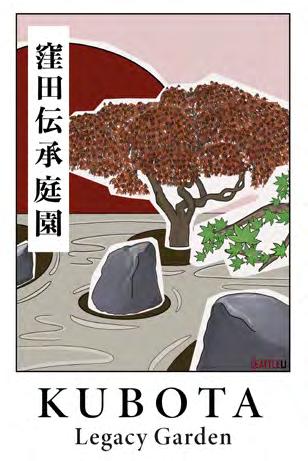
The poster features a handmade, cutout layered illustration that plays on the hand-placed layers of a Japanese garden.
In her work Delgado included Kubota’s laceleaf Japanese maple and greenleaf Japanese maple trees, as well as several of his stones, all of which are displayed in the new garden.
Says Delgado, “I also included the Japanese translation for ‘Kubota Legacy Garden’—thanks to my Japanese design professor Naomi Kasumi—to honor Kubota’s Japanese heritage. I also made sure to incorporate the Japanese rising red sun in the background, referencing the country's flag and, nickname ‘Land of the Rising Sun.’”
NEW PROGRAMS AND COURSE OFFERINGS
Seattle U continues on its path to be one of the most innovative and progressive Jesuit Catholic universities in the world—educating with excellence at the undergraduate, graduate and professional levels. As listed among its 2020-25 Strategic Directions, Seattle U strives to develop academic programs to respond to changing regional demands. To that end, here is a sampling of some of what’s new on the academic front:
ALBERS SCHOOL OF BUSINESS AND ECONOMICS MBA in Sport & Entertainment Management (MBA-SEM) Equips students with the business acumen for key roles in sport and entertainment organizations. Partners in this new MBA include all of Seattle’s professional sports teams: the Mariners, Seahawks, Seattle Kraken, Seattle Storm and the Sounders. Read more about this program at seattleu.edu/business/master-sportbusiness-leadership/.
Master’s in Accounting and Analytics Designed for individuals with an accounting undergraduate degree, the Master’s in Accounting and Analytics is a STEM-designated program.
COLLEGE OF ARTS & SCIENCES Master of Arts in Couples and Family Counseling As of July 1, 2021, the college is the new home for the Master of Arts in Couples and Family Therapy (previously offered through the School of Theology and Ministry). With this move, the program will transition to a two-year program and is focused on educating compassionate and competent couples and family therapists who work with clients across cultural locations and faith traditions.
Virtual Reality Filmmaking This course aims to introduce students into the immersive and interactive world of extended reality (XR) from a filmmaker’s point of view. It also challenges them to think analytically and creatively about its impact and invites them to create a project for virtual reality that addresses a particular need for the world they know today. The Film Program is rolling out a new curriculum with a specific focus on new media and technology.
Culture & Power in a Global U.S. This History course will approach the history of folk, counter and pop cultures in the United States as disputed borderlands—political flashpoints where the idea of America has been debated, challenged and ultimately reinvented. This new course aligns with the strategic directions initiatives about centering the margins.
The Human Ape Modern studies confirm that almost 99% of DNA sequencing between human and chimpanzee genomes is identical. The difference between monkeys and almost all great apes, including us? About 7%. This Anthropology course delves into the fascinating area of primatology and looks at the history of primate development and the leading-edge studies being done today on living species throughout the world.
Radicalism & Fascism: Antifa and the Proud Boys The movements identified with the politics of the far right and far left have a long history and have also changed over time. This Sociology course will look at specific movements in the United States, France and Germany, both historical and contemporary. Issues of styles of organizing, the use of violence, underlying class, gender and psychological variables and successes and failures will be considered.
COLLEGE OF SCIENCE AND ENGINEERING Master of Science in Data Science Recent decades have seen a rapid expansion in the speed and scale of data collection and there is growing demand for qualified data science professionals. Students benefit from Seattle University’s deep connections in the local tech industry, and the industry-sponsored capstone project offers excellent opportunities to network with potential employers.
SCHOOL OF LAW Flex Juris Doctor (JD) Program Starting this fall, the new part-time hybridonline JD program will prepare students to become practicing attorneys.
Online Master of Legal Studies in Compliance and Risk Management Become a trusted expert on the critical nuances of compliance and risk management through this flexible online degree program.
PREPARING FOR CAREERS OF THE FUTURE
By Allison Nitch
SOME OF THE ORGANIZATIONS THAT EMPLOY STUDENTS AND ALUMNI:
Amazon The Boeing Company Costco Wholesale Deloitte Expeditors Ernst & Young F5 Networks Fred Hutchinson Cancer Research Center Harborview Medical Center Jesuit Volunteer Corps JPMorgan Chase & Co. King County Microsoft Moss Adams Nordstrom PACCAR Parametric Portfolio Associates Peace Corps Seattle Children’s Hospital Swedish Medical Center Seattle Public Schools Seattle University Sound Mental Health Starbucks T-Mobile U. S. Army University of Washington Medical Center Virginia Mason Wayfair.com Zillow Zulily Seattle University’s Career Engagement Office works to prepare students for all stages of professional growth and career development, from interview prep and resume writing to networking and internship and employment opportunities.
“The SU Career Engagement Office recognizes that the world of work in 2021 and beyond is one where our alumni will likely encounter several career transitions over the course of their post-SU lives,” says Hilary Flanagan, executive director of the Career Engagement Office.
“One of our team’s main goals is to make sure that our graduates are prepared for all of those career transitions by helping them gain agency for their career development while students,” Flanagan continues. “This includes creating strategies for self-assessment related to values, skills, salient identities and interests, developing a community of support and confidence in sharing their stories and career arcs and bringing forward an authentic personal brand into the workforce.”
Seattle U students and alumni are sought after by employers throughout the Puget Sound region and beyond for internships and employment, from tech to law, engineering to the arts.
Says Flanagan, “No matter the industry or job function— including all those fields we have yet to discover—our graduates will be able to employ that agency to navigate future career transitions.”
A majority of the jobs of today and in the future will be around technology across industries, says Alicia Redmond, principal program manager at Microsoft who works within the education-tech space.
“Now that technology is infused into so many parts of today’s products, services and organizations, it is important for the future workforce to be prepared to leverage software, data and AI,” she says.
Redmond adds that existing jobs in established industries including health care, manufacturing, retail and energy will see positions shift to leverage more technology. “Since jobs will evolve and change into the future, students can expect to continue to learn throughout their career to build upon the skills they’ve gained so far.”
One technique that can be useful, says Redmond, is to match the skills students currently possess with those they’ll need to get their dream job or career.
“By having clarity around what skills they need, it can help them find opportunities to gain those skills as they pursue their career goals.”
APPLY WITHIN Need help writing a resume or cover letter? Want the 411 on networking and interviewing tips? Visit the Career Engagement Office to learn more: www.seattleu.edu/careerengagement/.
EXPANDING DIVERSITY AND ACCESS
First Black Student Union scholarship launches
By Allison Nitch
The Black Student Union (BSU) Scholarship Endowment is the first student-led, Black-serving scholarship at Seattle University. Organized by BSU President Adilia Watson, ’21, and BSU Vice President Tatianah Summers, ‘21, the Black Student Union Scholarship is intended to increase the enrollment of Black and African American students and help them graduate with fewer financial concerns.
Officially endowed by Seattle U last February, which allows BSU to continue awarding scholarships in the future, both currently enrolled and incoming students are eligible for the need-based scholarship. The current fundraising goal is $200,000, with the scholarship fund being managed through a partnership between Student Development and BSU. The Black Student Union is a group dedicated to creating a safe space for Black and Brown students and to connect with and support other Black students as they navigate a predominantly non-Black university by means of critical discussion, active listening, organizing and personal reflection.
Watson voices the need for more Black and African American students at Seattle U.
“We read the stories about the impact of police brutality on Black bodies, but where is the connection between those stories and their impact on Black students at Seattle U?” she asks. “How do Black students process what is going on in the world? BSU is one of the only places we can do that, along with the National Society of Black Engineers, the African Student Association and Queer and Trans People of Color.”
As introduced during Seattle Gives 2021, one of the outcomes of the scholarship endowment is to make the university a more accessible environment for Black students and would highlight Seattle U’s commitment to supporting and uplifting marginalized students by helping to fund their education.
“While reflecting on ways I can further serve the university, I had an opportunity to connect with the president of the Black Student Union to learn about their scholarship fundraising campaign,” says Board of Trustee member and former BSU President Jason Oliver, ’00. “I wanted to contribute and offered to do so by matching the dollars they were able to raise in a specific period of time. I feel blessed to be a part of this first scholarship campaign and look forward to supporting the growth of this student organization.”
To learn more about the BSU Scholarship
and how you can support it, contact the Gift Processing Manager at 206-220-8466 or email gifts@seattleu.edu.
save t h e date
SEPTEMBER 22, 2021
Costco Scholarship Fund (Virtual Event)
Since 2000, the Costco Scholarship Fund has given the transformative gift of scholarships designed to increase access to higher education for underrepresented minority students attending Seattle University and the UW. To register or donate to this annual fundraising event, visit costcoscholarshipfund.org.
NEW SCHOLARSHIPS
99,050
GIFTS
$303.5 MILLION
TOTAL AMOUNT RAISED IN CAMPAIGN DONORS
11,549
OF THESE DONORS ARE ALUMNI
THANK YOU!
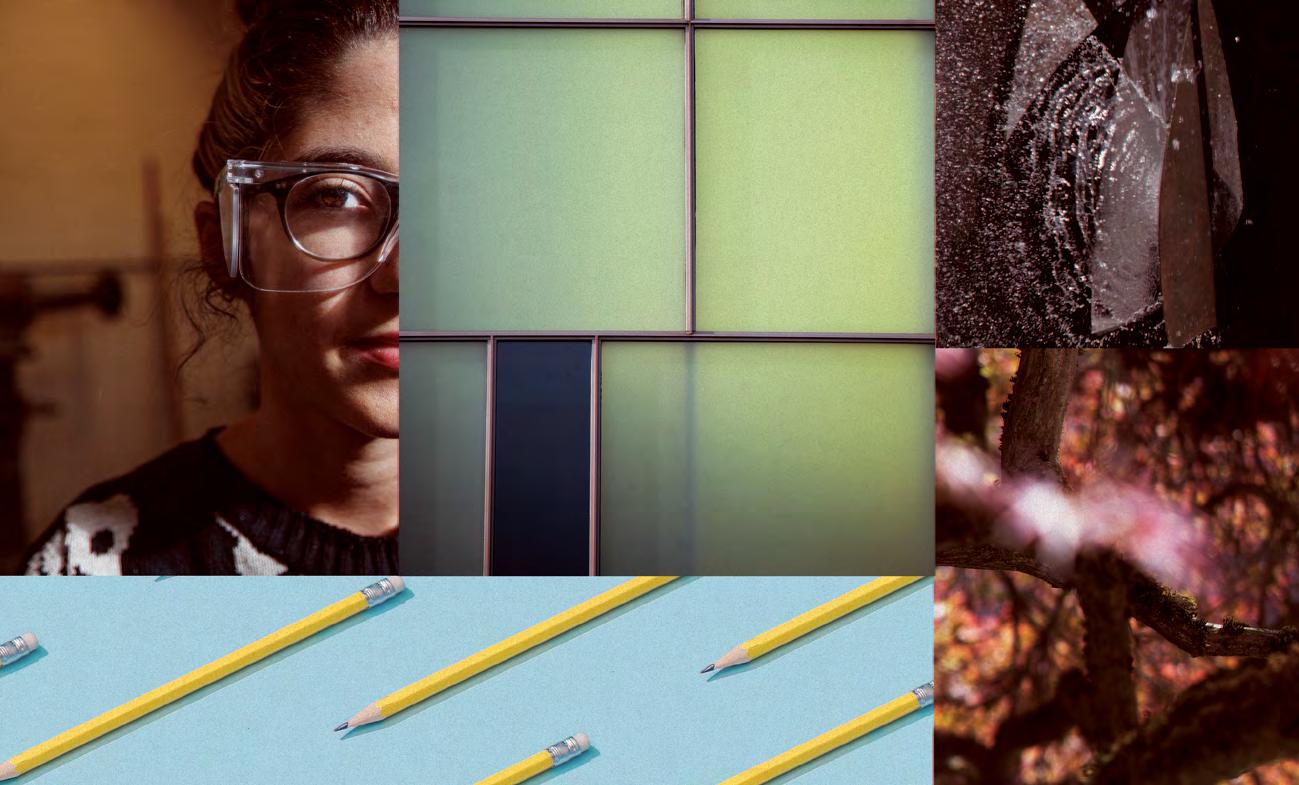
177
NEW ENDOWMENTS
121
OF WHICH ARE SCHOLARSHIPS
55
ARE MISSIONFOCUSED
$49,625,480
TOTAL OF NEW ENDOWMENTS
$66,201,955
TOTAL OF ALL ENDOWMENTS
IMPACT OF GIVING
Spotlight on Scholarships & Mission
Scholarships: The new scholarship endowments created during the campaign support students in 14 schools, colleges and programs across campus. These and other scholarship endowments are expected to provide nearly $10M in financial support to Seattle University students in FY22 and are providing greater access to education, while reducing student debt and offering more opportunities for engagement.
Misson: More than $113 million was raised during The Campaign for the Uncommon Good to deepen Seattle U’s Jesuit mission and care for the whole person through improved student experiences and wellness, campus engagement, athletics, experiential learning and residential life. Here’s a look at two new endowments:
Mental Health & Wellness Endowment
will increase the number of direct service providers, including additional licensed clinicians to meet the needs of students. Thanks to gifts to the endowment, the Counseling and Psychological Services office hired a full-time case manager who coordinates off-campus treatment referrals for students requiring long-term or specialized mental health care.
Stephen V. Sundborg, S.J., Endowment for
Teaching and Ministry will help maintain a robust Jesuit presence on campus that is imperative to fulfilling Seattle U’s mission. This endowment is helping recruit, welcome and employ Jesuits who contribute their gifts and talents as teachers, ministers, spiritual directors and administrators.
Our Moment for Mission: The President’s Challenge
Former President Stephen Sundborg, S.J., challenged 10,000 alumni to get involved with the university, not just by giving, but also by volunteering and connecting. And alumni answered the call with 10,862 accepting the challenge. And of this, 1,298 were alumni volunteers who spoke in classes and at events and served on boards and as mentors.








